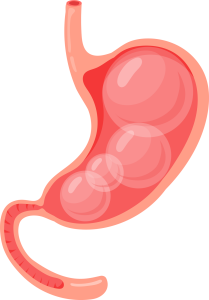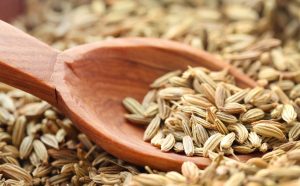Constipation and digestive issues can significantly impact one’s quality of life. Simple strategies can make a difference if you’re struggling with constipation or other digestive problems. In this article, we’ll explore three straightforward tips to help relieve constipation naturally and improve your digestive health. We’ll also discuss the role of digestive enzymes and how they can enhance your digestive system.
Understanding the Causes of Constipation
Before diving into the solutions, it’s essential to understand the common causes of constipation. One primary factor is the body’s insufficient quantity or quality of bile.
The Role of Bile in Digestion
Bile is a fluid produced by the liver and stored in the gallbladder. It plays a crucial role in digesting fats, allowing the body to absorb fat-soluble vitamins like A, D, E, and K. Bile also helps eliminate unused fats and waste products from the body. Problems with bile production or flow can lead to digestive issues such as gas, bloating, indigestion, and constipation.
Common Bile-Related Issues:
- Sluggish Gallbladder: Reduced gallbladder function can impede bile flow.
- Gallbladder Removal: Surgery to remove the gallbladder affects bile storage and release.
- Bile Duct Problems: Twisted or blocked bile ducts can hinder bile flow.
Tip 1: Support Liver Health for Better Bile Production
Since bile is produced in the liver, maintaining liver health is vital for improving bile quantity and quality.
How to Support Your Liver
- Regular Exercise: Physical activity enhances liver function and overall health.
- Eat on Time: Consistent meal times help regulate digestive processes.
- Avoid Late Dinners: Eating late can burden the liver and disrupt digestion.
- Herbal Support: Certain herbs can promote liver health.
Herbal Remedies
- Bhumyamalaki (Phyllanthus niruri): An effective herb for liver support. It may help improve bile production and prevent gallstones.
Dosage: Half or 1/4 teaspoon twice daily, 30 minutes after meals. For easier consumption, mix it with honey. Use for 45 days to 2 months, followed by a 15-day break before resuming if needed.
- Milk Thistle: Another herb known for its liver-protective properties. However, Bhumyamalaki is often preferred in Ayurvedic practice.
Tip 2: Increase Stomach Acid for Better Digestion
Low stomach acid can lead to digestive issues like acid reflux and heartburn. Adequate stomach acid is essential for breaking down food and absorbing nutrients.
Causes of Low Stomach Acid
- Poor Eating Habits: Irregular meal times and unhealthy food choices.
- Stress: Can negatively affect stomach acid production.
- Aging: Natural decline in stomach acid with age.
How to Improve Stomach Acid Levels
- Eat on Time: Regular meals help regulate stomach acid production.
- Healthy Diet Choices: Opt for whole foods over processed options.
Natural Remedies
- Apple Cider Vinegar: Mix one tablespoon of apple cider vinegar in warm water and drink it on an empty stomach in the morning or between meals. This may help increase stomach acidity and improve digestion.
- Lemon or Lime Juice: If you don’t like apple cider vinegar, substitute one tablespoon of lemon or lime juice in warm water and drink it in the morning.
- Triphala: An Ayurvedic herbal blend that supports digestive health.
Tip 3: Increase Fiber Intake for a Healthy Gut
Fiber is crucial for maintaining a healthy digestive system. It adds bulk to the stool, promotes regular bowel movements, and feeds beneficial gut bacteria.
Benefits of Fiber
- Promotes Regularity: Helps prevent constipation by adding bulk to the stool.
- Supports Gut Microbiota: Acts as a prebiotic, feeding the good bacteria in the gut.
- Improves Overall Digestion: Enhances nutrient absorption and digestive efficiency.
How to Increase Fiber Intake
- Eat Fruits and Vegetables Daily: Aim for at least two servings of fruits and multiple servings of vegetables daily.
- Whole Grains: Incorporate whole grains like brown rice, quinoa, and whole wheat into your diet.
- Legumes and Nuts: Beans, lentils, and nuts are excellent sources of fiber.
The Role of Digestive Enzymes
Digestive enzymes are proteins that help break down food into nutrients the body can absorb. They are vital for efficient digestion and for preventing constipation.
How Digestive Enzymes Help
- Break Down Macromolecules: Assist in digesting proteins, carbohydrates, and fats.
- Enhance Nutrient Absorption: Improve the body’s absorption of vitamins and minerals.
- Prevent Digestive Issues: Reduce symptoms like bloating, gas, and constipation.
Supporting Digestive Enzyme Production
- Chew Your Food Thoroughly: Stimulates enzyme production in the saliva and stomach.
- Include Enzyme-Rich Foods: Pineapple (which contains bromelain) and papaya (which contains papain) are natural sources of digestive enzymes.
- Stay Hydrated: Adequate water intake is essential for enzyme function.
Linking Digestive Enzymes
- Herbal Supplements: Herbs like Bhumyamalaki supports enzyme production by improving liver function.
- Apple Cider Vinegar and Lemon Juice: Their acidic nature stimulates the production of digestive enzymes.
- Fiber Intake: A healthy gut microbiome supported by fiber-rich foods can enhance the activity of digestive enzymes.
Final Thoughts
Addressing constipation doesn’t have to be complicated. Supporting liver health, increasing stomach acid naturally, and boosting fiber intake can improve your digestive system’s overall function. Additionally, understanding the role of digestive enzymes and how to support their activity can further enhance digestion and nutrient absorption.
-
Product on sale
 Goodness Digestive EnzymesOriginal price was: $ 29.95.$ 25.95Current price is: $ 25.95.
Goodness Digestive EnzymesOriginal price was: $ 29.95.$ 25.95Current price is: $ 25.95.






